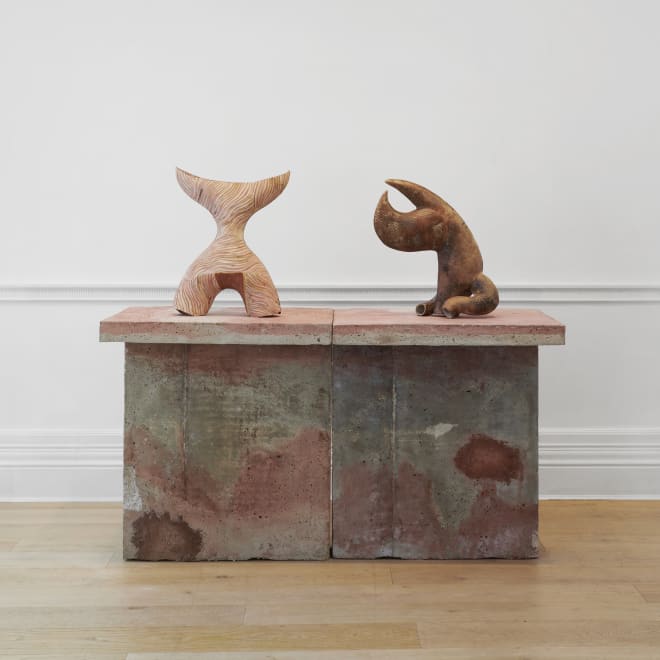Born in Liege, Belgium, Jacqueline Poncelet is a pioneer in ceramics and textiles. Renowned primarily for her simple, bone china ceramics, Poncelet's work shifted after a trip to NYC in 1978/79. Inspired by the urban environment, she started replicating artifical patterns through the use of the incised line or via coloured slips using industrial techniques, plaster and moulds to create unique shapes.
Returning to England in the 1980s, Poncelet became loosely associated with the New British Sculpture movement at the time, led by Tony Cragg, Richard Deacon, Anish Kapoor and Bill Woodrow who were reacting to the prevailing ideas of Minimal and Conceptual art. As a woman, and the wife of Richard Deacon, she was overshadowed by her male contemporaries, never achieving the same level of success despite being actively collected by major museums and having two major solo shows during that decade (at the Whitechapel Art Gallery, London in 1985 and Kettle’s Yard, Cambridge in 1988).
The '90s heralded the start of the YBA movement, and her work fell out of favour in the commercial art world. Poncelet focused on large-scale public art commissions and teaching. In 2009, she was commissioned by Art on the Underground to make a permanent work for Edgware Road Tube station; Wrapper was completed in 2012. In 2013, she was commissioned by Tate Enterprises to work with Melin Tregwynt in Pembrokeshire to produce woven textiles, which are now available at Tate Britain and Tate Modern to purchase in the museums' shops.
Poncelet lives and works between London and the South Wales Valleys. She studied at Wolverhampton College of Art and the Royal College of Art from 1966 until 1972. Poncelet is represented in important public collections throughout the world, including Tate Modern and the Victoria and Albert Museum in London; the Stedeljk Museum in Amsterdam; and the Museum of Modern Art, New York.

